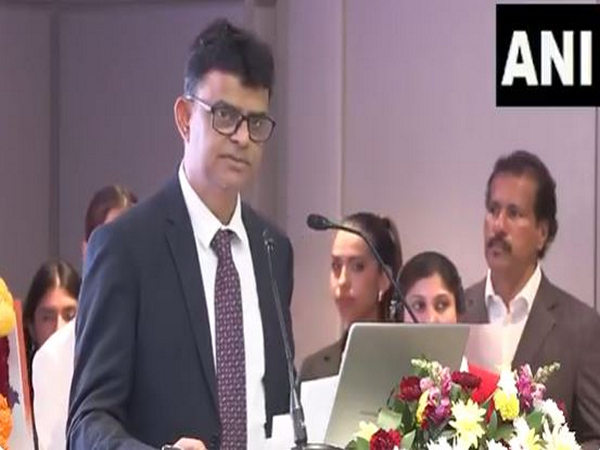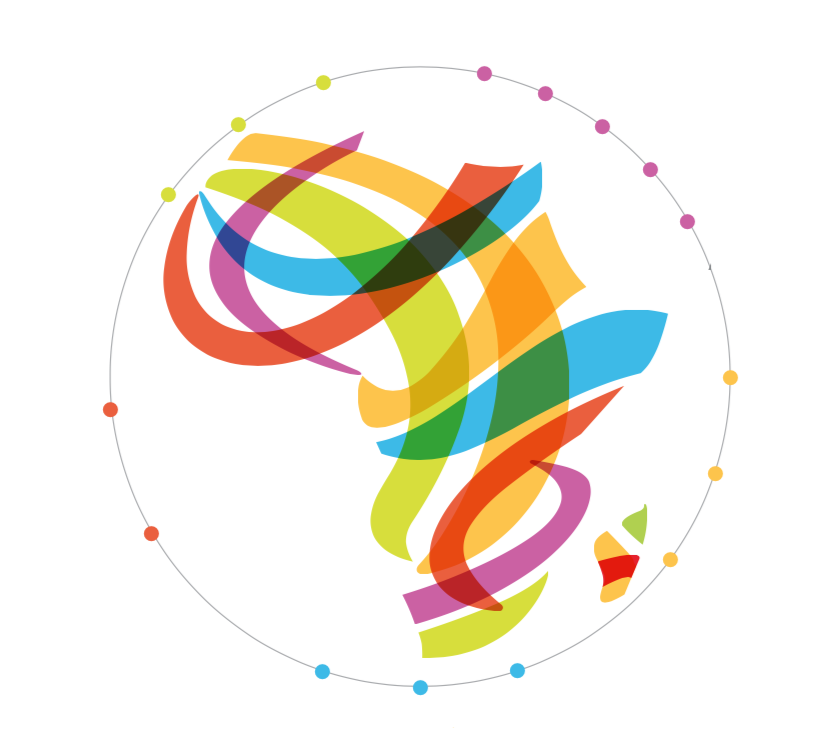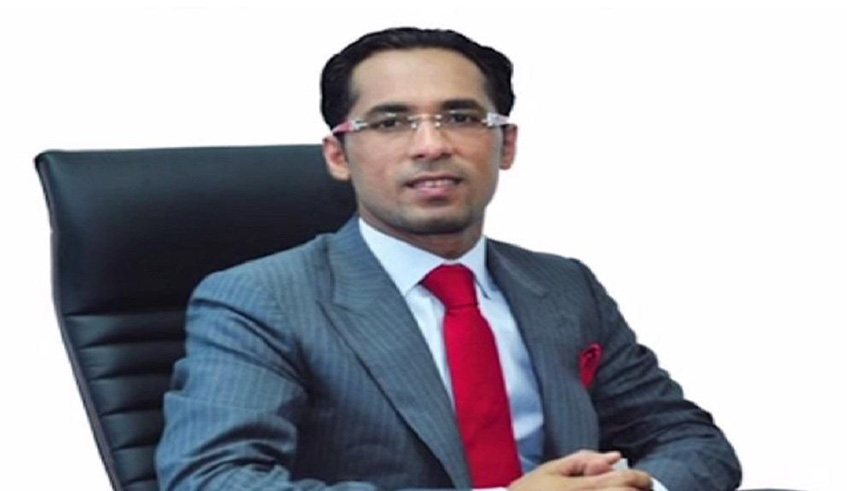
A New Era for San Antonio: The Trinity Oaks Project Unveiled
A groundbreaking project is taking shape in San Antonio, and it's one that has been in the works for nearly six years. Spearheaded by Santikos Entertainment, a well-known theater chain and real estate company based in the city, the development has kept many details under wraps until recently. For residents on the Far Northside, the presence of an ominous sign off U.S. 281 N. and Trinity Park has been a familiar sight since early 2020. The sign read, "If they build it, Santikos will come," sparking curiosity and speculation about what was to come.
The initial buzz around the project led to rumors about potential new attractions such as a theater, laser tag center, or even a bowling venue. However, when CEO Tim Handren announced his retirement in 2024 after leading the company for six years, questions arose about the future of the project. Despite this, Handren reassured residents last summer that the development was still moving forward. He mentioned that the project, named Trinity Oaks, was on track to have its pad sites available for interested tenants.
One of the most exciting aspects of the project, according to Handren, was the potential for a new theater. This promise has now been confirmed by the company's new CEO, Blake Hastings, who shared details with the San Antonio Business Journal. Hastings revealed that investors are pouring approximately $30 million into the project, which includes retail, housing, and dining options.
The Vision for Trinity Oaks
A property flyer for Trinity Oaks highlights the scale of the development. The proposed theater would occupy 60,120 square feet, anchoring a massive 33-acre land. Inside the theater, Santikos Chief Operating Officer Rob Lehman described plans for a sports bar with stadium seating, a gaming area, and bowling lanes. The facility is expected to feature roughly 10 to 12 screens, including two AVX premium large format screens.
Construction on the theater is scheduled to be completed by late 2027. Additionally, the site includes seven pad sites, as shown in a YouTube video advertising the land to tenants. One restaurant, Willie's Ice House, is already labeled as "in contract," supporting Hastings' claim about a significant South Texas presence on the property.
Expanding the Development
To the left of the eatery, a pad site is reserved for a hotel and a 14.40-acre multi-family housing complex. This aligns with Hastings’ mention of considering a multifamily development at a later stage. Should the site plan unfold as intended, the plaza would also include an 8,070 square-foot retail business, enhancing its appeal as a popular entertainment destination.
Hastings noted that Trinity Oaks pays tribute to the company founder, John Santikos. As a real estate developer and prominent entrepreneur, the property is one of the last he purchased in 2014. It follows his model of finding spaces for a theater and then building retail around it.
"I think he'd be pleased that we're trying to not just protect but build his legacy - both through the theater and the real estate, the things he was quite adept at," Hastings said in the report.
This ambitious project represents a significant step forward for Santikos Entertainment and the community of San Antonio. With its blend of entertainment, retail, and residential spaces, Trinity Oaks promises to become a vibrant hub for residents and visitors alike.








 Dar es Salaam. The East African Community (EAC) has taken over the rotating chairmanship of the COMESA-EAC-SADC Tripartite Task Force (TTF) at a crucial time, reigniting hopes for a more unified and integrated regional trade system. However, a central question remains: can this leadership role help the EAC overcome its internal challenges and lead to a genuinely tariff-free region? The TTF unites three major Regional Economic Communities (RECs): the Common Market for Eastern and Southern Africa (COMESA), the East African Community (EAC), and the Southern African Development Community (SADC). It was created to coordinate the implementation of the Tripartite Free Trade Area (TFTA). Launched in 2015, the TFTA aims to promote market integration, industrial growth, and infrastructure development across 29 African countries, serving a population of over 700 million. Yet, almost a decade later, progress has been slower than anticipated due to ongoing non-tariff barriers, delayed ratifications, and a lack of unified customs systems among member states. On July 25, 2024, the TFTA Agreement officially came into effect after securing the necessary 14 ratifications. However, the real challenge lies in putting the agreement into practice, a task now entrusted to the EAC as it assumes the TTF's leadership. EAC Secretary General, Ms Veronica Nduva, speaking at a high-level roundtable in Malabo, Equatorial Guinea, on July 14, 2025, advocated for a continent-wide resource mobilisation strategy to replace fragmented efforts that have hindered progress. "We must abandon disjointed approaches. Africa needs a harmonised strategy for resource mobilisation to effectively implement Agenda 2063," she stated. "We see the TFTA as a strategic tool to deepen integration, boost competitiveness, unlock intra-African trade, and advance inclusive industrialisation," she added. Ms Nduva also highlighted the importance of blended financing models involving public, private, and philanthropic capital, along with the use of technology to enhance coordination and accountability. The big question While the EAC’s assumption of leadership is diplomatically significant, the bloc has faced difficulties in implementing its integration protocols. Several EAC Partner States have previously failed to uphold agreed tariff removals, leading to internal trade disputes and delays in harmonisation efforts. Trade tensions between Kenya and Tanzania over products such as sugar, maize, and milk have revealed the inconsistent application of EAC trade rules, undermining the bloc’s credibility in broader integration efforts. According to Dr Paul Omollo, a regional trade policy analyst based in Dar es Salaam, the EAC must first address its shortcomings. "The EAC has made impressive commitments on paper. But implementation remains its biggest weakness," Dr Omollo told The Citizen by phone. "Taking over TTF leadership is significant, but the EAC must back that up with real reforms at home. It must demonstrate that regional integration can work, starting with its borders." What does chairing the TTF mean? Assuming the TTF chairmanship places the EAC in charge of guiding the finalisation of tariff offers, adoption of rules of origin, and encouraging ratification by the remaining states. The bloc is also expected to lead the revival of the TFTA’s industrial development pillar, one of its key components. "Our focus is to ensure that the TFTA becomes fully operational, not just in name but in action," said Ms Nduva. "We are pushing for the ratification of both the trade and movement of businesspeople agreements," she said. Experts believe this leadership position could allow the EAC to influence harmonised customs policies, coordinated infrastructure investments, and the development of joint industrial zones, provided there is strong political will among member states. "The TFTA could be a game-changer if it builds synergies across the three RECs," said a policy adviser at TradeMark Africa, Mr Humphrey Ramela. "The EAC’s leadership is timely. But success depends on aligning national interests with regional ambitions," he added. Another key theme from the Malabo roundtable was financial independence, with Ms Nduva reiterating the need for African nations to reduce reliance on external donors and adopt African-led financing models. "Austerity must go hand-in-hand with innovation. Resources allocated for development must be managed with discipline and efficiency," she noted. The African Union Commission Chairperson, Mahmoud Ali Youssouf, echoed this sentiment, urging member states to finance their development agendas and adopt the instruments required to operationalise the TFTA by the time of the next Tripartite Council of Ministers meeting. "African ownership is not optional; it is the only path to sustainable development," said Mr Youssouf. With preparations for the fourth Tripartite Summit underway, during which the TFTA will be formally launched, expectations are high. The EAC’s challenge will be to not only champion regional integration at the tripartite level but also prove its commitment to seamless trade within its borders.
Dar es Salaam. The East African Community (EAC) has taken over the rotating chairmanship of the COMESA-EAC-SADC Tripartite Task Force (TTF) at a crucial time, reigniting hopes for a more unified and integrated regional trade system. However, a central question remains: can this leadership role help the EAC overcome its internal challenges and lead to a genuinely tariff-free region? The TTF unites three major Regional Economic Communities (RECs): the Common Market for Eastern and Southern Africa (COMESA), the East African Community (EAC), and the Southern African Development Community (SADC). It was created to coordinate the implementation of the Tripartite Free Trade Area (TFTA). Launched in 2015, the TFTA aims to promote market integration, industrial growth, and infrastructure development across 29 African countries, serving a population of over 700 million. Yet, almost a decade later, progress has been slower than anticipated due to ongoing non-tariff barriers, delayed ratifications, and a lack of unified customs systems among member states. On July 25, 2024, the TFTA Agreement officially came into effect after securing the necessary 14 ratifications. However, the real challenge lies in putting the agreement into practice, a task now entrusted to the EAC as it assumes the TTF's leadership. EAC Secretary General, Ms Veronica Nduva, speaking at a high-level roundtable in Malabo, Equatorial Guinea, on July 14, 2025, advocated for a continent-wide resource mobilisation strategy to replace fragmented efforts that have hindered progress. "We must abandon disjointed approaches. Africa needs a harmonised strategy for resource mobilisation to effectively implement Agenda 2063," she stated. "We see the TFTA as a strategic tool to deepen integration, boost competitiveness, unlock intra-African trade, and advance inclusive industrialisation," she added. Ms Nduva also highlighted the importance of blended financing models involving public, private, and philanthropic capital, along with the use of technology to enhance coordination and accountability. The big question While the EAC’s assumption of leadership is diplomatically significant, the bloc has faced difficulties in implementing its integration protocols. Several EAC Partner States have previously failed to uphold agreed tariff removals, leading to internal trade disputes and delays in harmonisation efforts. Trade tensions between Kenya and Tanzania over products such as sugar, maize, and milk have revealed the inconsistent application of EAC trade rules, undermining the bloc’s credibility in broader integration efforts. According to Dr Paul Omollo, a regional trade policy analyst based in Dar es Salaam, the EAC must first address its shortcomings. "The EAC has made impressive commitments on paper. But implementation remains its biggest weakness," Dr Omollo told The Citizen by phone. "Taking over TTF leadership is significant, but the EAC must back that up with real reforms at home. It must demonstrate that regional integration can work, starting with its borders." What does chairing the TTF mean? Assuming the TTF chairmanship places the EAC in charge of guiding the finalisation of tariff offers, adoption of rules of origin, and encouraging ratification by the remaining states. The bloc is also expected to lead the revival of the TFTA’s industrial development pillar, one of its key components. "Our focus is to ensure that the TFTA becomes fully operational, not just in name but in action," said Ms Nduva. "We are pushing for the ratification of both the trade and movement of businesspeople agreements," she said. Experts believe this leadership position could allow the EAC to influence harmonised customs policies, coordinated infrastructure investments, and the development of joint industrial zones, provided there is strong political will among member states. "The TFTA could be a game-changer if it builds synergies across the three RECs," said a policy adviser at TradeMark Africa, Mr Humphrey Ramela. "The EAC’s leadership is timely. But success depends on aligning national interests with regional ambitions," he added. Another key theme from the Malabo roundtable was financial independence, with Ms Nduva reiterating the need for African nations to reduce reliance on external donors and adopt African-led financing models. "Austerity must go hand-in-hand with innovation. Resources allocated for development must be managed with discipline and efficiency," she noted. The African Union Commission Chairperson, Mahmoud Ali Youssouf, echoed this sentiment, urging member states to finance their development agendas and adopt the instruments required to operationalise the TFTA by the time of the next Tripartite Council of Ministers meeting. "African ownership is not optional; it is the only path to sustainable development," said Mr Youssouf. With preparations for the fourth Tripartite Summit underway, during which the TFTA will be formally launched, expectations are high. The EAC’s challenge will be to not only champion regional integration at the tripartite level but also prove its commitment to seamless trade within its borders.






 "Each investment is a risk," and Chinese factories are experiencing "significant losses" by manufacturing in Southeast Asian countries subjected to Trump's tariffs, as reported by industry experts.
"Each investment is a risk," and Chinese factories are experiencing "significant losses" by manufacturing in Southeast Asian countries subjected to Trump's tariffs, as reported by industry experts.
 Dar es Salaam. Tanzania is being encouraged to implement deliberate economic policies aimed at creating dollar billionaires and enhancing its global economic influence. According to a new wealth report, the country currently has only one dollar billionaire and a limited number of high-net-worth individuals. The Africa Wealth Report 2023 indicates that Tanzania has 2,400 individuals with a net worth exceeding $1 million. Out of these, only six have assets above $100 million, while the country has just one billionaire despite being the second-largest economy in East Africa. Also read: 435 Tanzanians join the billionaires' club - The Citizen Tanzania While the number of millionaires has risen by 20 percent over the past decade, economists believe this figure could be much higher if the country had strategic policies to support fast-growing local investors capable of expanding into international markets. "The government could significantly boost some of our wealthy entrepreneurs by matching or even partially matching their capital. That alone could reduce our reliance on imports," said Dar es Salaam-based entrepreneur Amina Salum. Experts cite the United States and China as examples of countries that have used state support to create global economic powerhouses. In 2024 alone, the US government allocated over $180 billion in subsidies to domestic companies. Firms such as Boeing, Intel, Amazon and Tesla have benefited from subsidies, tax exemptions and government-backed loans to support research, manufacturing and exports. Such policies have enabled the US to remain a global tech leader, create millions of jobs and use multinational corporations as ambassadors of national influence. China, through institutions like the China Development Bank, has extended low-interest loans and subsidies to companies such as CCCC and China Railway Engineering Corporation, enabling them to execute infrastructure projects across Africa and Asia. Backed by their government, these companies have expanded aggressively, securing contracts in many countries, strengthening China’s global economic influence. Level playing field no longer enough Tanzania has long promoted a “level playing field” approach for all businesses. But analysts say this neutral policy risks holding back local firms with the potential to create wealth and export influence. "Tanzania needs a strategy to support businesses that have proven capacity to create jobs, grow exports and increase tax revenues," said Prof Abel Kinyondo, an economist at the University of Dar es Salaam. He said targeted support could include direct financial subsidies, time-limited tax relief to reduce operating costs and credit guarantees to help companies access large-scale capital. "Strategic preferential treatment works. Ethiopia is already applying it in aviation. Their national airline is now among the best in Africa because it enjoys specific government support," he said. Prof Kinyondo emphasized the need for strong oversight and transparency, saying only experienced, high-performing entrepreneurs should be considered for such support. Another economist, Prof Dickson Pastory of the College of Business Education, said empowering local investors can also enhance national security by reducing dependency on external suppliers for essential goods. "For crucial sectors, supporting domestic production guarantees supply. It also improves Tanzania’s competitiveness in the global economy," he said. While financial subsidies may be challenging for developing countries, Prof Pastory said tax exemptions could achieve similar results. "Reducing tax burdens allows businesses to expand and create more jobs, ultimately boosting national GDP," he noted. BoT support mechanisms already in place The Bank of Tanzania (BoT) has on several occasions expressed willingness to support local businesses through the Export Credit Guarantee Scheme (ECGS) and the SME Credit Guarantee Scheme (SME-CGS). These aim to help private-sector players with bankable projects access financing even when they lack sufficient collateral. In June 2023, at the height of the dollar shortage, BoT governor Emmanuel Tutuba said the central bank had taken steps to encourage domestic production and promote import substitution. He said the BoT board had visited several strategic sites to assess opportunities to boost exports and foreign exchange earnings. "We wanted to know what investors need to scale up production and exports, especially in terms of financial support." Provided by SyndiGate Media Inc. (Syndigate.info).
Dar es Salaam. Tanzania is being encouraged to implement deliberate economic policies aimed at creating dollar billionaires and enhancing its global economic influence. According to a new wealth report, the country currently has only one dollar billionaire and a limited number of high-net-worth individuals. The Africa Wealth Report 2023 indicates that Tanzania has 2,400 individuals with a net worth exceeding $1 million. Out of these, only six have assets above $100 million, while the country has just one billionaire despite being the second-largest economy in East Africa. Also read: 435 Tanzanians join the billionaires' club - The Citizen Tanzania While the number of millionaires has risen by 20 percent over the past decade, economists believe this figure could be much higher if the country had strategic policies to support fast-growing local investors capable of expanding into international markets. "The government could significantly boost some of our wealthy entrepreneurs by matching or even partially matching their capital. That alone could reduce our reliance on imports," said Dar es Salaam-based entrepreneur Amina Salum. Experts cite the United States and China as examples of countries that have used state support to create global economic powerhouses. In 2024 alone, the US government allocated over $180 billion in subsidies to domestic companies. Firms such as Boeing, Intel, Amazon and Tesla have benefited from subsidies, tax exemptions and government-backed loans to support research, manufacturing and exports. Such policies have enabled the US to remain a global tech leader, create millions of jobs and use multinational corporations as ambassadors of national influence. China, through institutions like the China Development Bank, has extended low-interest loans and subsidies to companies such as CCCC and China Railway Engineering Corporation, enabling them to execute infrastructure projects across Africa and Asia. Backed by their government, these companies have expanded aggressively, securing contracts in many countries, strengthening China’s global economic influence. Level playing field no longer enough Tanzania has long promoted a “level playing field” approach for all businesses. But analysts say this neutral policy risks holding back local firms with the potential to create wealth and export influence. "Tanzania needs a strategy to support businesses that have proven capacity to create jobs, grow exports and increase tax revenues," said Prof Abel Kinyondo, an economist at the University of Dar es Salaam. He said targeted support could include direct financial subsidies, time-limited tax relief to reduce operating costs and credit guarantees to help companies access large-scale capital. "Strategic preferential treatment works. Ethiopia is already applying it in aviation. Their national airline is now among the best in Africa because it enjoys specific government support," he said. Prof Kinyondo emphasized the need for strong oversight and transparency, saying only experienced, high-performing entrepreneurs should be considered for such support. Another economist, Prof Dickson Pastory of the College of Business Education, said empowering local investors can also enhance national security by reducing dependency on external suppliers for essential goods. "For crucial sectors, supporting domestic production guarantees supply. It also improves Tanzania’s competitiveness in the global economy," he said. While financial subsidies may be challenging for developing countries, Prof Pastory said tax exemptions could achieve similar results. "Reducing tax burdens allows businesses to expand and create more jobs, ultimately boosting national GDP," he noted. BoT support mechanisms already in place The Bank of Tanzania (BoT) has on several occasions expressed willingness to support local businesses through the Export Credit Guarantee Scheme (ECGS) and the SME Credit Guarantee Scheme (SME-CGS). These aim to help private-sector players with bankable projects access financing even when they lack sufficient collateral. In June 2023, at the height of the dollar shortage, BoT governor Emmanuel Tutuba said the central bank had taken steps to encourage domestic production and promote import substitution. He said the BoT board had visited several strategic sites to assess opportunities to boost exports and foreign exchange earnings. "We wanted to know what investors need to scale up production and exports, especially in terms of financial support." Provided by SyndiGate Media Inc. (Syndigate.info).

